Ha Giang’s Culinary Specialties: Top 17 Famous Dishes From This Renowned Northern Land
Ha Giang presents not only breathtaking landscape but also a gastronomic excursion as rich and varied as its ethnic fabric. Ha Giang’s cuisine is a gold mine simply waiting to be unearthed regardless of your taste in food or merely curiosity in Vietnamese flavours. So, grab your fork and let MOTOGO Tours dig into the Ha Giang’s culinary specialties!
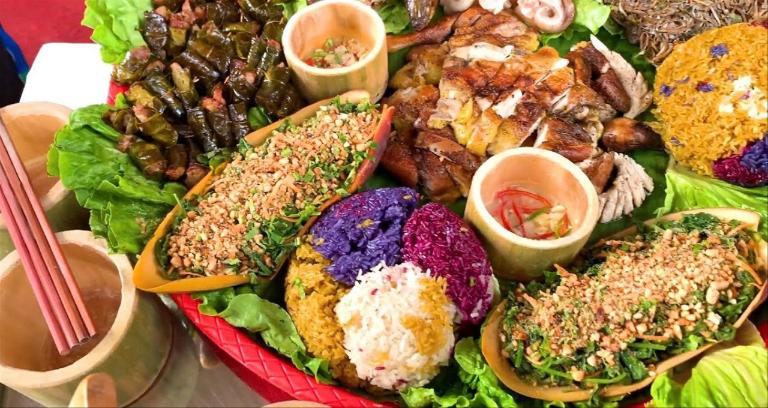
Au Tau Porridge: A Culinary Delight
The name alone sparks interest, thus Au Tau Porridge is a famous meal among Ha Giang visitors. Made from Au Tau, a rare tuber known for its therapeutic qualities but with toxins that need to be carefully handled to guarantee safety, this particular porridge is Following careful cooking, the harmful components are eliminated to provide a wonderful and nutritious meal.
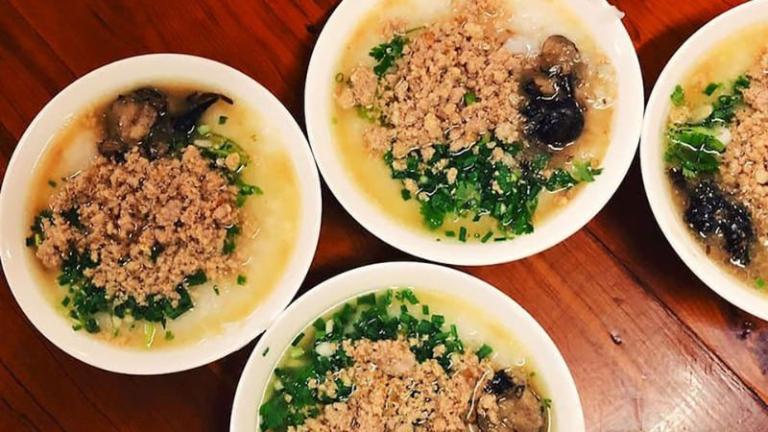
Au Tau Porridge’s rice is a mix of conventional and sticky varieties. The rice is overnight soaked and completely cleaned. The Au Tau reaches a soft consistency after being cleaned and boiling for almost four hours. After ready, the Aulacophora is mashed and combined with the soaked rice, pig trotters, and different spices. Au Tau Porridge is a wonderful gastronomic experience because of its mix of tastes and ingredients.
Thang Co – A Symbol of Ha Giang’s Culinary Specialties
Talking about Ha Giang’s gastronomic skills, one cannot ignore Thang Co. Often called the “tribal hot pot,” this dish is representative of the ethnic communities in the area. All, from the young to the elderly, love it.
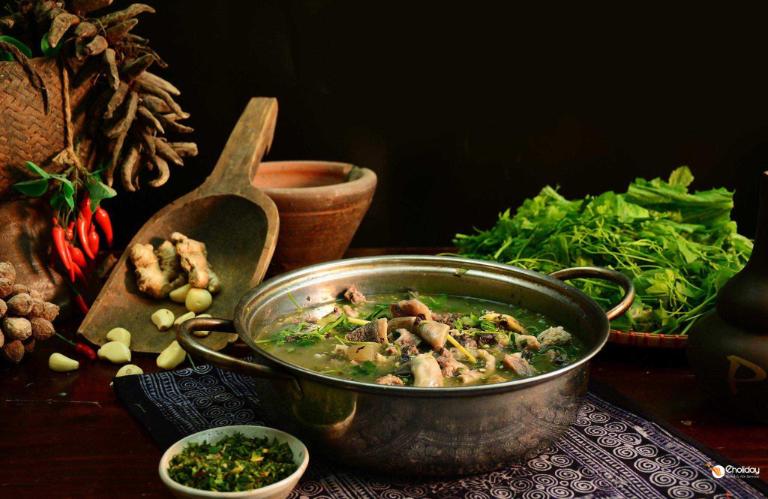
Thang Co is really a concoction of several meats and animal organs—horse, buffalo, and cattle among others. This meal once consisted just of horse meat and organs, but over time it has become a varied and appetising meal that suits a greater spectrum of palates. Usually, Thang Co is savoured with aromatic herbs and spices unique of this hilly area.
Grilled Moss – A Unique Hà Giang Specialty
Without include Grilled Moss, no study of the upland cuisine of Hà Giang would be whole. Deeply ingrained in the gastronomic customs of the Tày, Nùng, and Mường ethnic groups is this cuisine Grilled moss requires pretty careful preparation since it only lasts roughly seven days. Usually on the third day when it is at its best, tender and delicious, locals pick it.
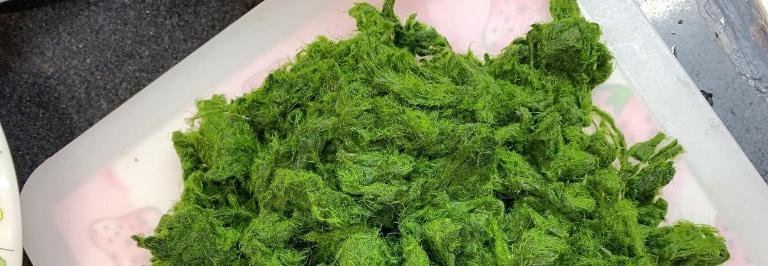
Shredded and seasoned with spring onions, lemongrass, coriander, chives, and Vietnamese balm, the moss—harvested from freshwater streams—is cleaned to eliminate any slime before grilling. This dish has an appealing taste and several health advantages including enhancing circulation, body detoxification, and energy increase.
Thang Den – A Famous Hà Giang Dessert
Although Thang Den initially seems to many as Banh troi nuoc, the taste is clearly different. Made similarly to banh troi nuoc, the dough consists of mung beans, sesame, and coconut filling most usually. Still, the main difference is the broth presented alongside the dumplings. Made from sugar using a secret formula, the broth contains Fresh ginger, apricot blossoms, coconut milk, peanuts are added to improve the taste. Thang Den’s price is among its most enticing features.
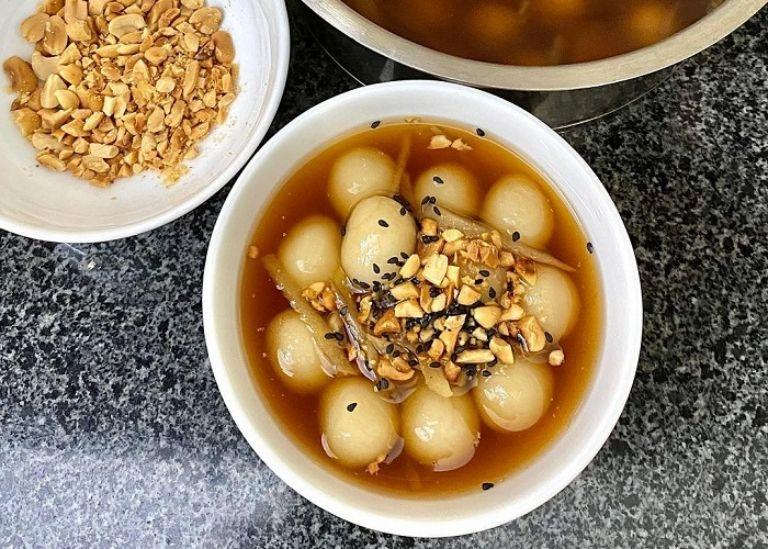
Five-Color Sticky Rice
Five-Color Sticky Rice, as named for its vivid colors—red, green, white, yellow, and purple—fits very well. Local villagers plant and harvest aromatic sticky rice used in this meal. Made with all-natural ingredients to achieve its striking colours, it is a basic offering in ceremonies. Families honour cultural legacy by cooking this meal to mark weddings, Lunar New Year, and other significant events, so highlighting their gastronomic talents. The vivid colours reflect hope and delight, therefore fostering unity among family and friends during festivities.
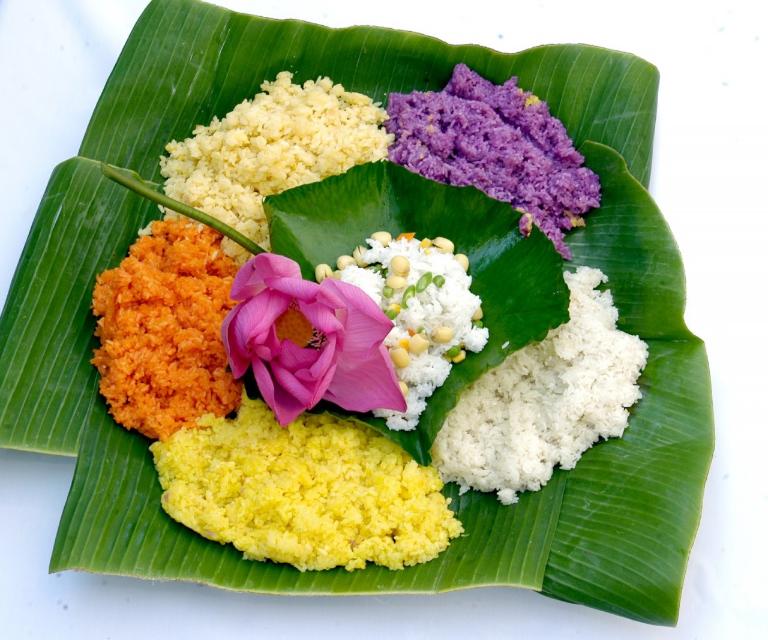
La Chi Rat Meat
La Chi rat meat is no more a curiosity; for many, it is become a favourite meal. Should you are in northern Vietnam, don’t miss the chance to sample La Chi rat meat. Rat meat in La Chi highlights the local gastronomic tradition rather than only survival. Stir-fried rat, grilled rat, and rat jerky are among the very appealing ways the rats here are presented. Your palate will be permanently changed by these unique tastes.
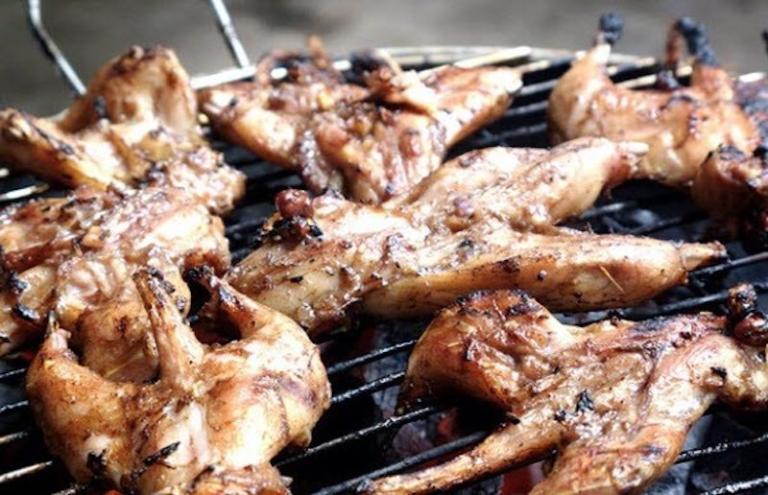
Cap Nach Pork – One of Must-Try Ha Giang’s Culinary Specialties
Those visiting Vietnam’s northernmost point have to taste Cap Nach Pork. This meal captures the way of life and culture of the people really brilliantly. One might carry these small pigs on the shoulder or under an arm. Cap Nach Pork are slim and delicious since they were raised in a free-range environment; so, meals prepared from this meat are much sought after. If you find yourself in Hà Giang, you really must savour Cap Nach Pork cuisine since their tantalising tastes will enthral you.
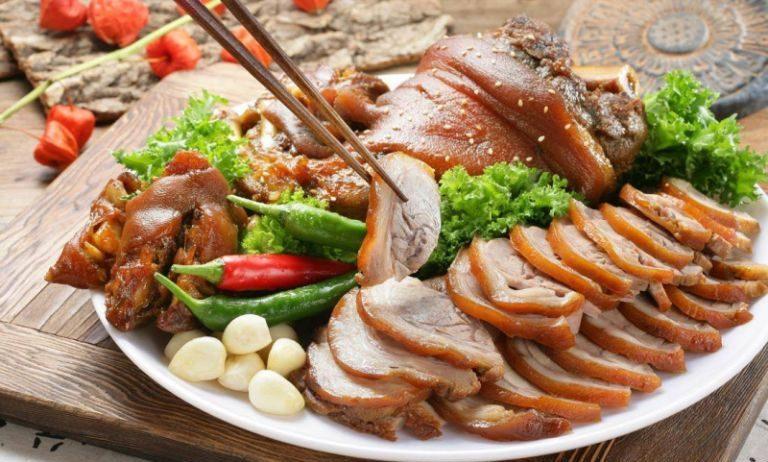
Egg Rice Rolls – A Distinct Specialty of Hà Giang
Unlike rice rolls from other areas, the Ha Giang version calls for eggs and a range of spices. In this form, one egg is cracked on top and distributed equally once the batter is laid on the steaming cloth. Before rolling everything together, further ingredients including minced beef, shiitake mushrooms, wood ear mushrooms are added. The matching dipping sauce is what really distinguishes this dish. The locals have created a dipping sauce that is just amazing using unique local ingredients.
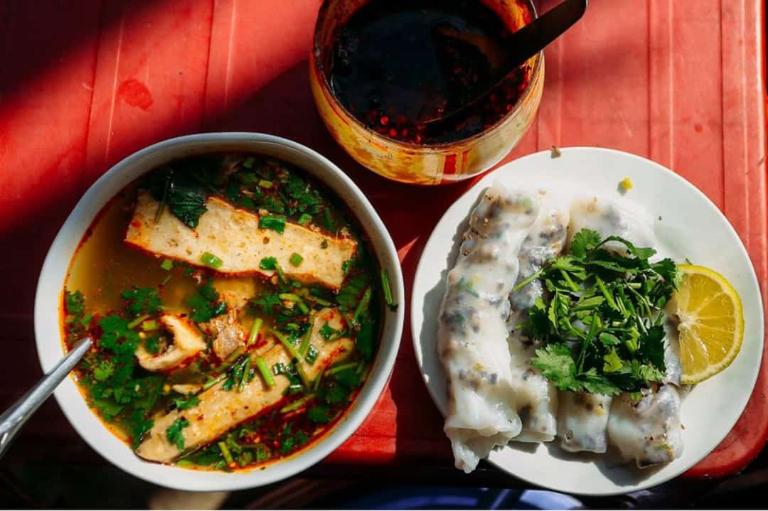
>>> Discover Dong Van Rice Rolls | The Delights of Ha Giang Cuisine
Sour Pho – A Regional Variation
Although Ha Giang’s Sour Pho comes from China, it has been polished to produce a distinctive taste sensation. Made according to a unique recipe, this dish consists of soft, chewy, pure white noodles free of any bleaching additives. The noodles are cooked till soft using stir-fried technique. Combing rich, salty, and sweet tastes, the broth is clear and thick. The pho bowl calls for roasted pork, eggs, peanuts, cucumbers, and aromatic herbs among other items. Many visitors choose Sour Pho in the summer because of its cool taste; some prefer it in the winter for its cosiness.
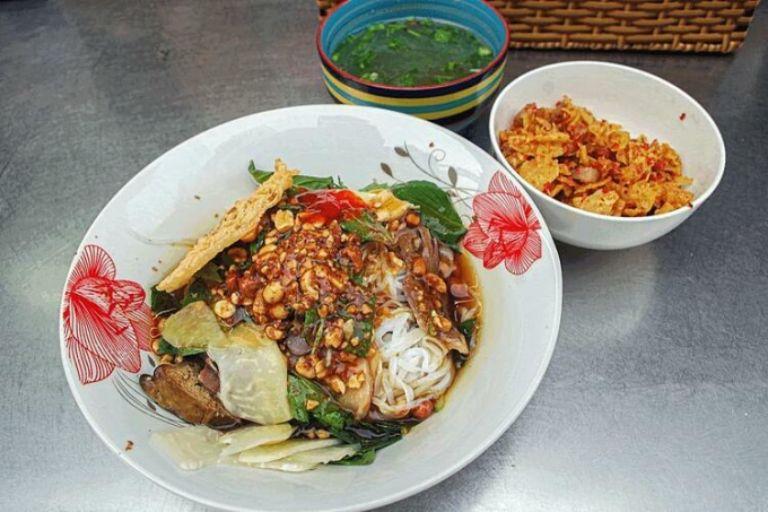
Smoked Meat
One cannot miss Ha Giang’s fundamental specialty— smoked meat. Those who are familiar with the northern alpine people’s way of life and culture would know that every household hangs some kind of smoked meat above their fireplace. The meat is chopped into long strips, seasoned with regional spices, skewered, then hung to ddr. One can create the smoked meat from buffalo or pork. Make sure you purchase some smoked pork to savour and gift when heading to Ha Giang.
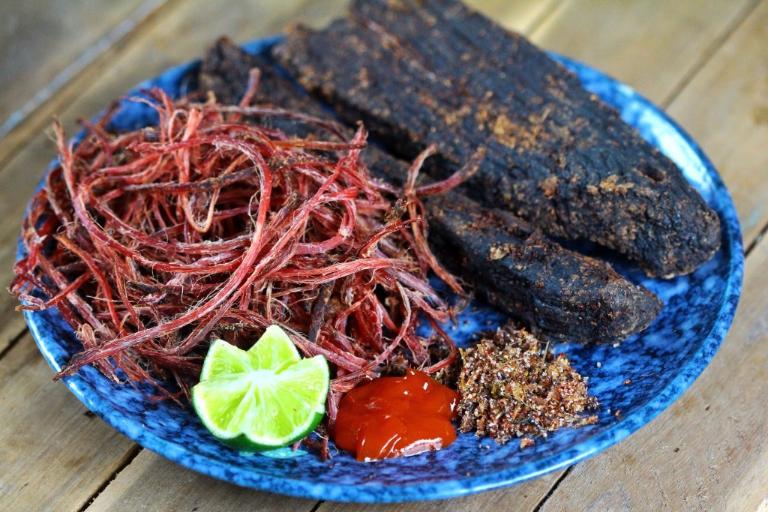
>>> Let’s see more: Smoked Buffalo Meat | Discover Ha Giang’s Unique Culinary Delicacy
Bac Me Lam Rice – One of must-visit Ha Giang’s Culinary Specialties
Among the several local ethnic groups, Bac Me Lam Rice is a well-known meal. The rice is grilled straight over coals until perfectly cooked, cooked in bamboo or rattan tubes. Many of the residents eat this dish during fieldwork as a dinner. Lam Rice has a distinctive taste that is both delicious and chewy, however the cooking is really basic and quick.
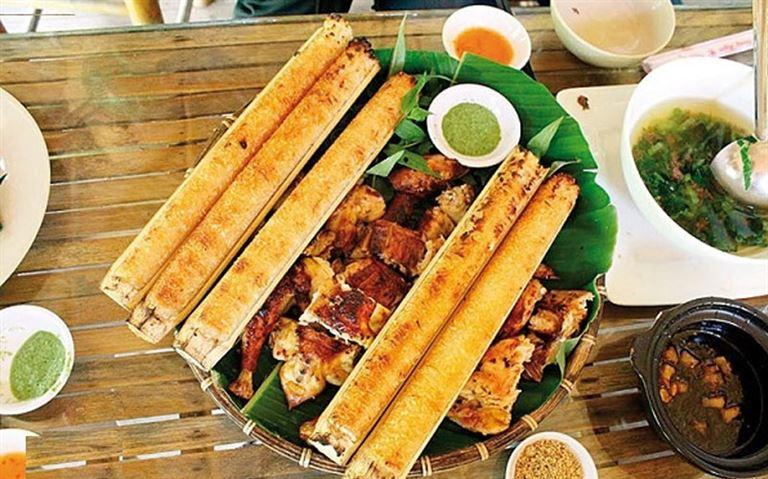
Mint Honey Meo Vac – A Favorite Hà Giang Specialty
Mint Honey Meo Vac has grown to be a favourite speciality of Ha Giang because of its unique scent and great sweetness. Bees gathering nectar from peppermint blossoms create this honey. Regarding health advantages, Mint Honey Meo Vac is quite appreciated among other kinds of honey.
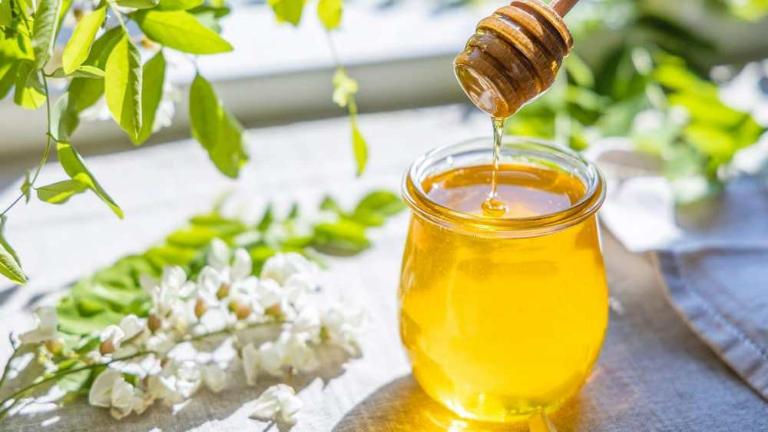
Shan Tuyet Tea
Found in Ha Giang’s mountainous areas, Shan Tuyet tea plant the almost 300-year-old. Natural gift to the region, this unusual type thrives on the particular soil and climate of the rocky mountains. The tea smells gently, has lovely colours, first tastes a little bitter but has a pleasant aftertaste. These ingredients taken together provide a really unique and outstanding tea.
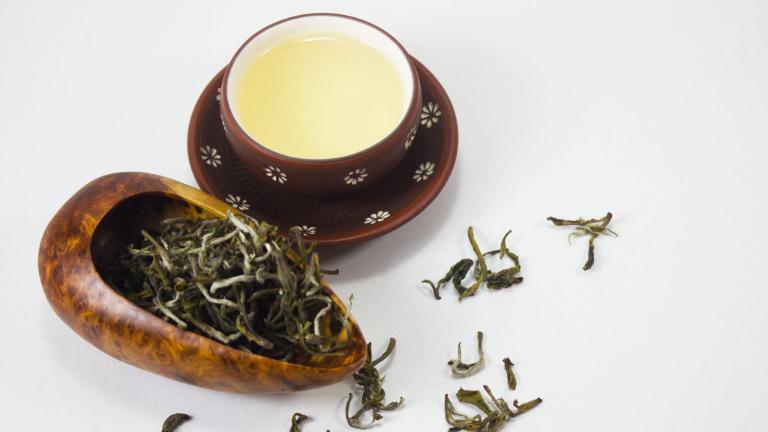
Buckwheat cake | One of Ha Giang’s culinary specialties
Buckwheat, is regarded as the “national flower” of Ha Giang. To stave off hunger in the frigid winter, the residents grow buckwheat blossoms as nourishment. The buckwheat seeds are refined for use in producing cakes or alcohol following harvest. Buckwheat cake looks basic, but making this speciality calls for several procedures.
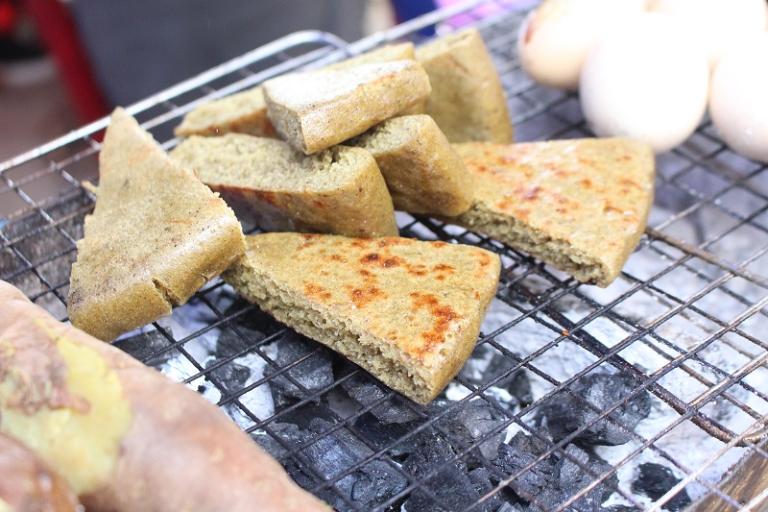
Ha Giang Sausage
Ha Giang Sausage made from hog belly with the skin removed is seasoned with spices and unusual mountain herbs. Every visitor to this northern area will find the tastes of this banger enthrals their palette. During the Tet celebration, the Nùng and Mông ethnic groups also depend much on this meal. Making banger captures the rich gastronomic tradition of the region. Thus, make sure you enjoy this mouthwatering cuisine when visiting Ha Giang.
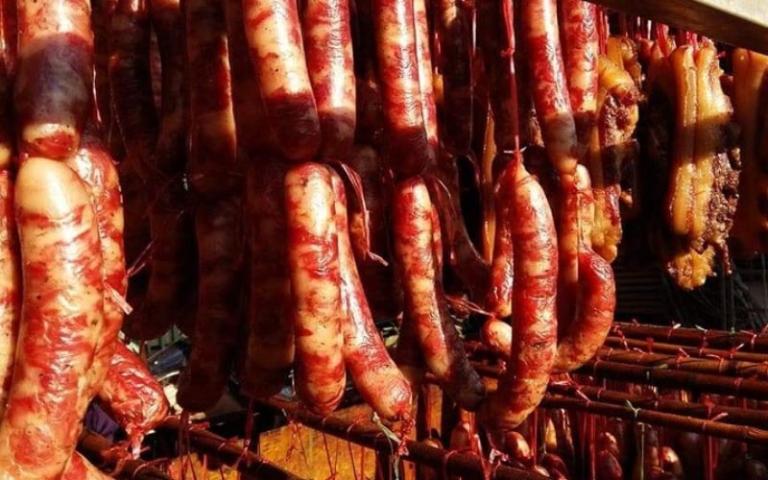
Corn Wine | One of Ha Giang’s culinary specialties
One drink that has enthralled many guests to Vietnam’s northernmost point is corn wine. Made from corn, spring water and a unique fermenting agent created from 36 distinct medicinal herbs, this drink is It has hence a unique and seductive taste. Drinking a cup of maize wine is a unique experience on cold days in the mountains.

Famous Fruits of Ha Giang
Ha Giang’s steep geography and distinctive temperature help to produce especially delicious fruits. Among the notables from this rocky highland area are oranges, cat apples, pears, seedless persimmons, and peaches. These fruits are not only great but also quite healthful. Therefore, if you have the possibility to visit Ha Giang, think about gathering some of these fruits to enjoy and present as gifts.
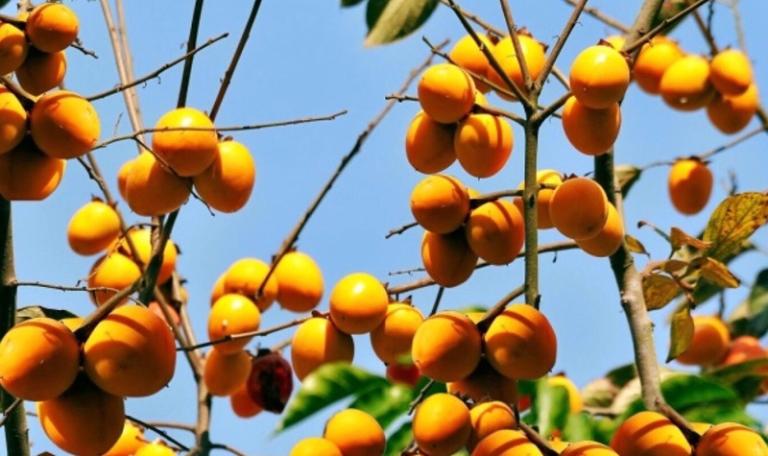
Ha Giang’s culinary specialties arecaptivating blend of tradition, culture, and community. From its distinctive cuisine including Thang Co and Five-Color Sticky Rice to the busy local markets and energetic celebrations, Ha Giang’s cuisine reveals a narrative as rich and varied as the surroundings. Thus, don’t miss the opportunity to enjoy Ha Giang’s gastronomic treasures the next time you find yourself in Vietnam.
Related Posts:
- Ha Giang Travel: A Journey to Vietnam’s Northern Frontier
- Must-Visit Destinations in Ha Giang: A Comprehensive Travel Guide
- Hidden Gems in Ha Giang: Discover the Untouched Beauty of Vietnam’s Northern Frontier
- Villages in Ha Giang: Explore the Hidden Gems of Northern Vietnam
- Explore Top 09 Famous and Unique Festivals in Ha Giang







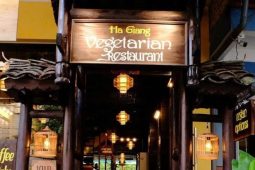
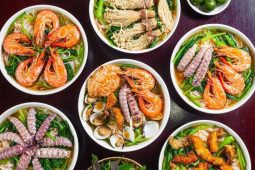

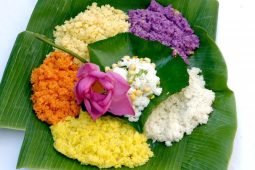
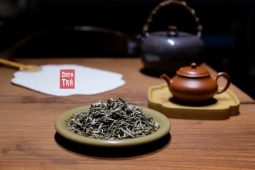
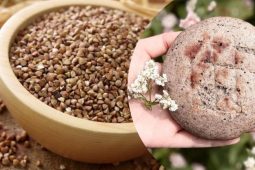
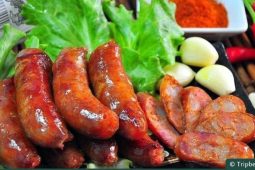
Be the first to comment!